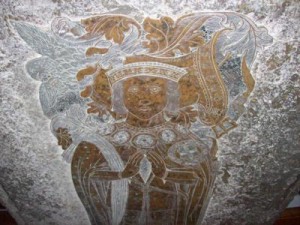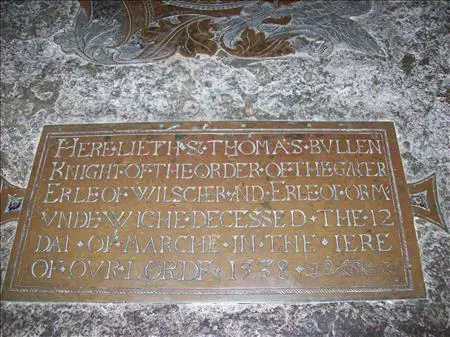 “My good lord and master is dead. He made the end of a good Christian man. Hever, 13 March.”1 So wrote Thomas Boleyn’s servant, Robert Cranwell, to Thomas Cromwell in 1539.
“My good lord and master is dead. He made the end of a good Christian man. Hever, 13 March.”1 So wrote Thomas Boleyn’s servant, Robert Cranwell, to Thomas Cromwell in 1539.
Thomas Boleyn, Earl of Wiltshire and Ormond and father of the late Queen Anne Boleyn, had died at his home, Hever Castle, at the age of about sixty-two. He had fallen from royal favour after the falls of two of his children, Anne and George, losing his office of Lord Privy Seal in June 1536, but had climbed back into favour after helping to squash the rebels of the Pilgrimage of Grace rebellion in Autumn 1536. It had even been rumoured, following the death of his wife, Elizabeth, in 1538, that he would marry Lady Margaret Douglas, the king’s niece!2
Following Thomas’s death, Henry VIII ordered masses to be said for his soul.3 Thomas was laid to rest in the family church, St Peter’s Church at Hever. Visitors to the church today can see his tomb, which is topped by a magnificent brass memorial which shows him dressed as a Knight of the Garter. Above his right shoulder sits his daughter Anne’s falcon crest. At his feet, there is a griffin. One of his sons, Henry Boleyn, is buried nearby, a simple small brass cross on the floor acting as a memorial.
Thomas Boleyn’s tomb has the following inscription:
“Here lieth Sir Thomas Bullen, Knight of the Order of the Garter, Erle of Wilscher and Erle or Ormunde, which decessed the 12th dai of Marche in the iere of our Lorde 1538.”

In Tudor times, the new calendar year did not start until Lady Day on 25th March, so Thomas Boleyn’s death was recorded as being in 1538, rather than 1539.
You can read more about Thomas Boleyn in the following articles:
and in our Thomas Boleyn category.
Notes and Sources
Photos: copyright Tim and Claire Ridgway 2010.
- Letters and Papers, Foreign and Domestic, Henry VIII, XIV Part 1, 511.
- LP xiii. Part 1. 1419.
- LP xiv. 950.